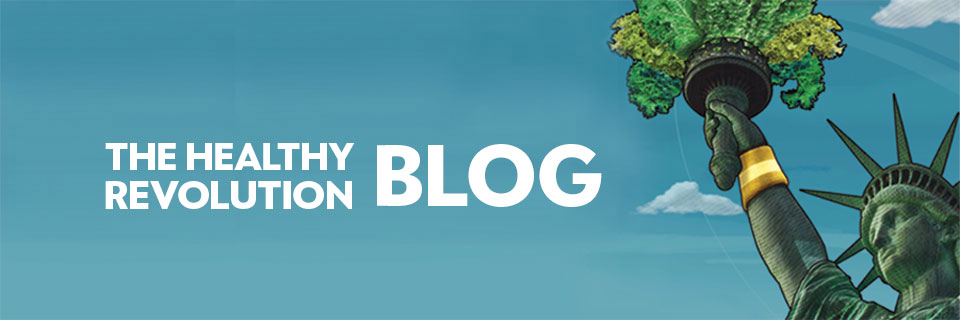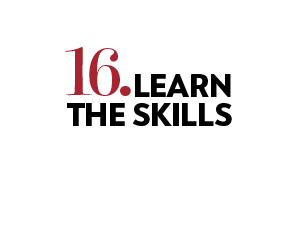
Yesterday, the National Organization of Women (NOW) celebrated its 15th annual “National Love Your Body” day.
As someone who grew up in a family with four sisters, has a Master’s degree in feminist studies and attended a Women’s College, I’ve been thinking, discussing and writing about this topic for years. Back in the ’90s, I even made a poster for a conference on the topic (below).
Since I work at a health and fitness magazine, this is a frequent topic of conversation and articles and many of the same ideas in the NOW campaign are included in Revolutionary Act’s 101 Revolutionary Ways to Be Healthy.
Now, I know some of you are going to say that being overweight is a choice. Of course our choices profoundly affect our lives and as a feminist, it’s imperative to claim we all have agency. If we don’t claim our power, we can get trapped in victim thinking, which doesn’t help anything.
But, it’s not simply about our choices; it’s a systemic problem. Not only do we have government policies that include subsidies on corn, wheat and soy that are used to create quick-and-easy foods, we define ourselves and create our identities, in part, by our culture. The beauty standards that come from media have a profound impact on our lives. By beauty standards, I don’t just mean the size and shape of a body, but include things like race, sexual orientation, ability, class, age and so on. Notions of masculinity and femininity shape identity production, and our response to media images definitely informs this production, both consciously and unconsciously. (Take a minute to consider what you think makes someone beautiful and why and write it down.)
For example, people comment on how I look all the time. Two years ago, I weighed about 145 pounds and now I weigh 115. I didn’t go on any formalized diet or attempt to lose weight. I began biking more often and started lifting weights and changed a few things I ate. I started eating a lot more protein and high-quality fats. To be honest, I didn’t even really notice that I was “thinner,” I just noticed that I felt a lot better in my body. As someone with post-traumatic stress disorder, to actually like and notice how it FEELS to live in my body is a big deal.
It’s a noticeable change on the outside, too. So naturally people in my life (even at my workplace) are going to comment that I look “thinner” and also be concerned by it. I simultaneously “look great” and “don’t eat enough.” Both are well-meaning assumptions of the individual commenters, but assumptions nonetheless.
It’s up to them to figure out why they are making these statements, but it’s also up to me to explain to them that I looked just fine before and that I eat a lot, I just eat what works best for my body and that I had to figure that out by trying a lot of different things, just like most people. I also have to be vigilant on not making judgments like this about myself and other people. That’s tough to do. As Americans, we’re born into a culture built on competition and comparing. There’s not necessarily anything wrong with that, but it does mean we shouldn’t be afraid to exercise our agency and turn off the TV, or stop reading things if we don’t like what we see there.
It also means we need to tell advertisers, politicians and family and friends what our expectations are. We have to have conversations. We have to get educated. We can’t rely on just one source to tell us what it means to be healthy and happy. We have to define that for ourselves.
Let’s use the ideas behind “National Love Your Body” every day to focus on all the amazing things our bodies can do and to have conversations with our co-workers, family, friends and neighbors about what being healthy means to each of us. First and foremost, it means loving and accepting ourselves exactly how we are today. As my meditation instructor always reminds us at the end of each session: there’s nothing you need to change or improve, you just need to be present.
Heidi Wachter is the Community Engagement Specialist for Experience Life magazine.
For those interested in additional resources, here are some of my favorite books, film and websites:
Books
Toms, Coons, Mulattoes, Mammies, and Bucks: An Interpretive History of Blacks in American Films – by Donald Bogle
Blues Legacies and Black Feminism: Gertrude “Ma” Rainey, Bessie Smith, and Bilie Holiday – by Angela Y. Davis
Framing Blackness: The African American Image in Film – by Ed Guerrero
From Reverence to Rape: The Treatment of Women in the Movies – by Molly Haskell
Reel to Real: Race, Sex and Class at the Movies – by bell hooks
Celluloid Indians: Native Americans and Film – by Neva Jacquelyn Kilpatrick
The Sexual Subject: Screen Reader in Sexuality – by Mandy Merck
The Bluest Eye – Toni Morrison
Barbie’s Queer Accessories – by Erica Rand
Film/Videos
The Celluloid Closet – by Rob Epstein and Jeffrey Friendman
Killing Us Softly – by Jean Kilbourne, Ed.D.
Miss Representation – by Jennifer Siebel
Websites
From Blackface to Blaxploitation: Representations of African Americans in Film – Duke University Library
Geena Davis Institute on Gender in Media
GLAAD (Gays and Lesbians Alliance Against Defamation)





